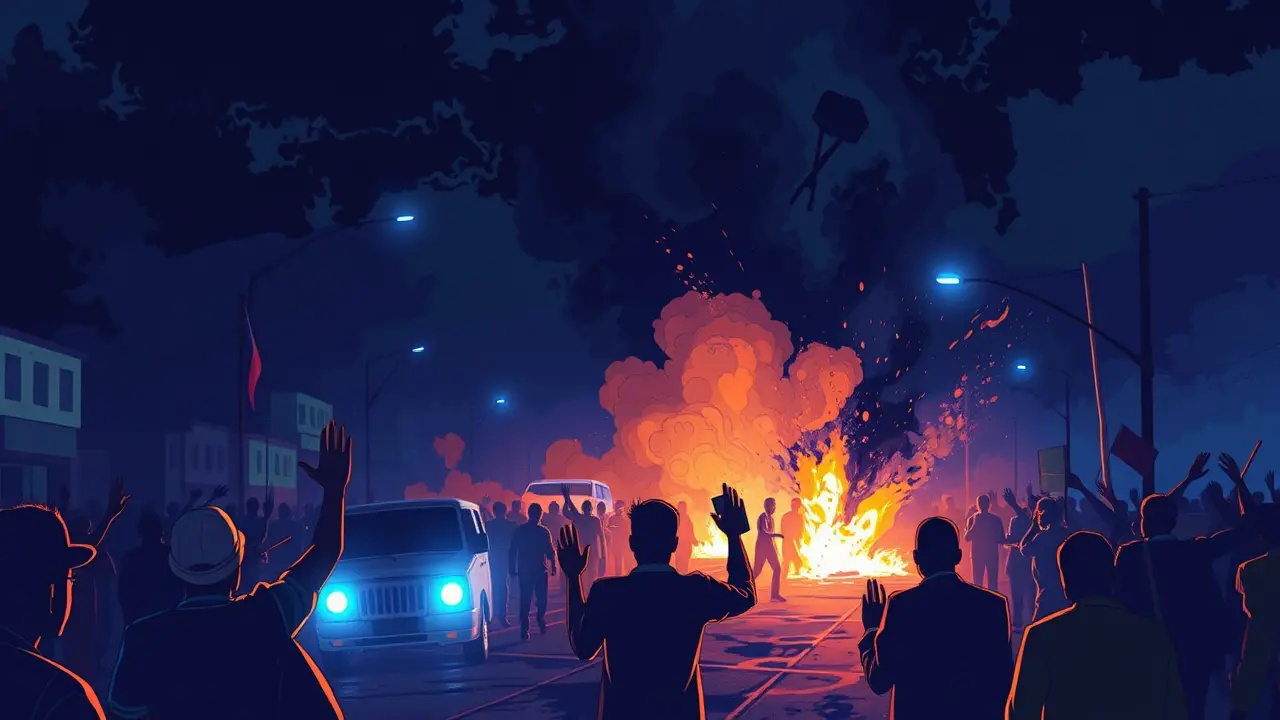Police Fire on Protesters Rejecting Madagascar President's Vow
The crack of gunfire echoed through the dusty streets of Antananarivo, a stark punctuation to President Andry Rajoelina’s failed political gambit. His vow, made with the bravado of a man betting his career, was simple: fix Madagascar’s deep-seated crises—the crippling poverty, the rampant corruption, the decaying infrastructure—within a single year, or resign.That year has now passed, and the problems not only persist but have festered, leading to a predictable and violent confrontation as police fired upon crowds of protesters who had gathered to reject the president’s empty promise and demand he honor his word. This is not an isolated incident but the latest eruption in a long-simmering political volcano.Rajoelina, a former DJ and mayor who first seized power in a 2009 coup that was widely condemned by the international community, has long cultivated an image of a dynamic leader. Yet, his tenure has been marred by accusations of authoritarian tendencies and a failure to deliver tangible improvements for the island nation’s 28 million people, over 75% of whom live below the international poverty line.The specific pledge that now haunts him was a desperate attempt to quell dissent that had been building for months, a theatrical promise meant to buy time and project confidence. Analysts who study political instability in the region saw it as a classic high-risk strategy; by putting his presidency on the line, he sought to rally support and portray himself as a leader of unwavering resolve.Instead, it has backfired spectacularly, transforming a general discontent into a focused, potent anger centered on a broken contract. The scenes from the capital are tragically familiar in the annals of global protest: young students, their faces masked by bandanas, throwing rocks at armored vehicles; the acrid smell of tear gas mixing with the smoke from burning tires; the frantic shouts and the sudden, terrifying silence that follows a volley of shots.Initial reports are chaotic, as they always are, with government sources claiming officers fired only warning shots into the air after being pelted with projectiles, while eyewitnesses and local NGO workers speak of live ammunition aimed at crowds, leaving a still-uncertain number of casualties. This violent response follows a pattern seen from Sudan to Myanmar, where regimes facing legitimacy crises often resort to force as their first, not last, resort.The consequences of today’s bloodshed will ripple far beyond the capital’s avenues. The African Union, which has historically taken a cautious stance on Madagascar’s internal politics, is now under pressure to issue a strong condemnation, while former colonial power France and other European nations are likely reviewing their development aid packages, which total hundreds of millions of euros annually.More immediately, the crackdown will likely radicalize a previously fragmented opposition, uniting everyone from student unions to disaffected business leaders under a single, clear demand: Rajoelina must go. The president now faces a binary choice with no easy answers.Clinging to power through escalating violence risks plunging one of the world’s most unique ecological treasures into a prolonged period of civil unrest, further crippling its economy and isolating it diplomatically. Conversely, stepping down could create a power vacuum that might be filled by even more unstable military elements or lead to a chaotic scramble for control among rival political factions. The people in the streets, however, are no longer weighing these geopolitical calculations; they are acting on the raw emotion of betrayal, their protest a simple, powerful statement that a leader’s word, once broken, is a currency that can no longer be spent.
It’s quiet here...Start the conversation by leaving the first comment.
© 2025 Outpoll Service LTD. All rights reserved.
